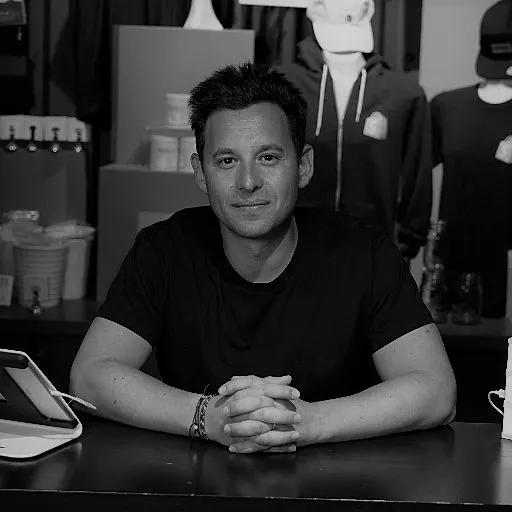The future of retail is everywhere, says Shopify President Harley Finkelstein
2020 changed retail and commerce not just for consumers, but also businesses. At the Resurgence TiE-Delhi-NCR online conclave, Shopify's Harley Finkelstein outlines how.
Harley Finkelstein, President of Shopify, one of the world’s biggest online commerce enabler, believes the future of retail is not online or offline or on social media. The future of retail is everywhere, he said, adding that conscious consumerism is here to stay, as the COVID-19 pandemic transformed consumer preferences in a very concrete, permanent way that had not been seen before.
2020 was a pivotal year for digital retail, not only leading to a mass acceleration in digital retail, but also creating a demand for new paths to commerce, Harley said, speaking at the Resurgence TiEcon Delhi – NCR online conclave on Wednesday.
The COVID-19 pandemic has not only motivated merchants to look at different ways of selling, but also changed the way buyers shop and think about product pricing and brands, he added.
From his conversations with hundreds of consumers that shop on Shopify, Harley distilled a few categorical changes in consumer preferences caused by the pandemic:
- Shoppers today prefer to buy from independent, small businesses whenever possible. They do this to not only support small brands but because they genuinely believe in the brand’s philosophy and the quality it offers
- Cognisant of the fact that small businesses are struggling due to the pandemic, consumers are making conscious decisions to shop at local businesses, and doing everything they can to support and strengthen their local economy
- Buyers are more likely to buy sustainable products or companies that market themselves as conscious sellers. They’re also responding positively to businesses that support social causes or pledge a portion of their sales to a social issue.
These trends are very different from ones that have been influencing shopping decisions over the last 10 to 20 years — affordability and convenience.
“Conscious consumerism is going to be a staple in consumer preferences now. We’re not going back to consumers saying they’re going to buy something because it’s affordable,” Harley said during the session.

Harley Finkelstein, President of Shopify. (Image credit: Harley's Twitter)
On the sell side, merchants too have changed the way they’re thinking about ecommerce. Closures of brick and mortar shops have led to shoppers going online for their purchases — whether it’s on a marketplace platform, an independent website, or social media shops. For retailers to successfully tap their target market, they need to understand their customers better, said Harley.
“I truly believe that the future of commerce is not online or offline marketplaces or Snapchat or Instagram — it’s everywhere; it’s where the consumer wants to buy.”
More and more companies today prefer direct selling online because it helps them curate an experience and they want buyers to come back — they’re playing the long game and they want to understand their customers’ needs better.
At the same time, they’re tapping marketplace platforms to give customers a quick taste of their product, hoping they come to the company’s website the next time, and also to clear out inventory.
“Brands launching today want to have a direct relationship with the end-user. They also want to be a global business right out of the box — direct selling helps there, especially in a country like India where new businesses are growing quickly,” he said.
Think global, build local
Harley set out a few guidelines that Indian entrepreneurs can follow to successfully build a global business:
- India has an innovative tech ecosystem, friendly government policies for small businesses, and buyers that are receptive to emerging brands. For people building right now, the aim should be to start at home, grow, adapt and understand the product-market fit, and then go global using those learnings.
- Adopt a mobile-first approach right out of the gate. India has millions of young consumers, and appealing to a younger demographic is important for emerging brands.
- Test your product with an audience that knows what you’re talking about.
- Understand your brand and define your brand identity.
- Don’t go at it alone. Create a tribe of people that are doing the same thing you’re trying to do so you can share your stories and experiences with them, as well as learn from them.
The last advice Harley gave applies not just to entrepreneurs, but everyone:
“Be ambitious, make no small plans.”
Edited by Tenzin Pema







